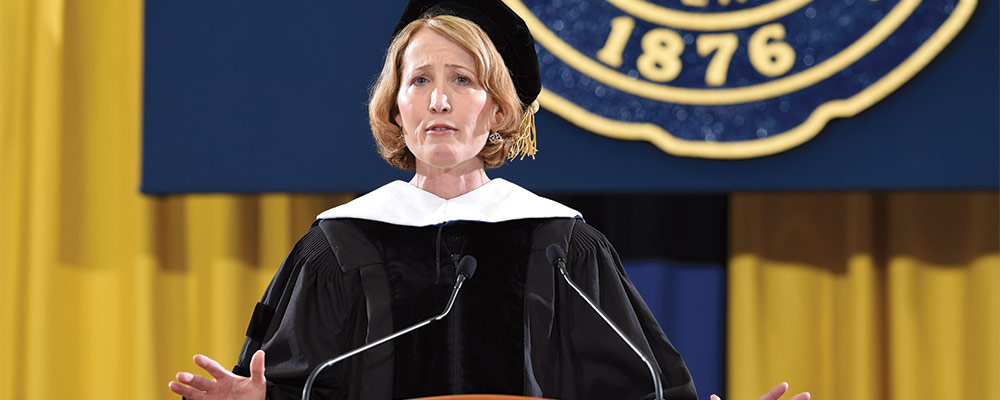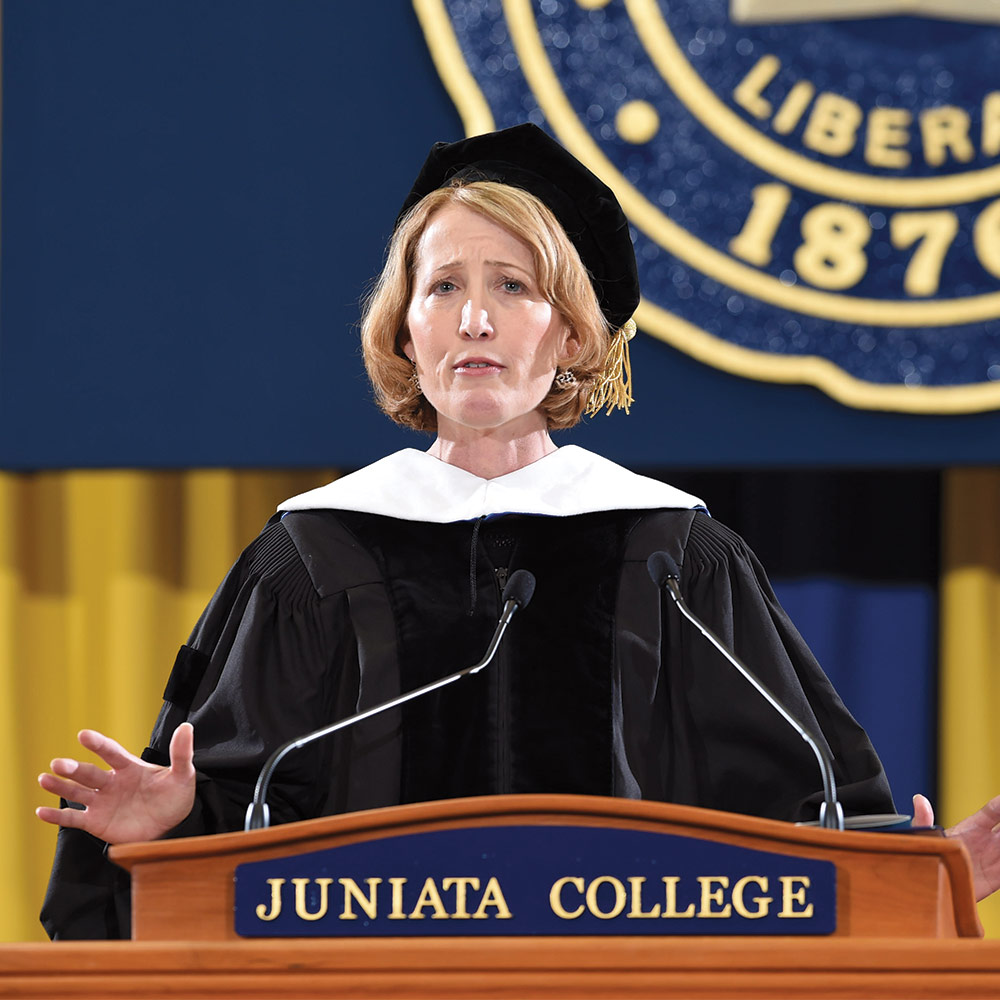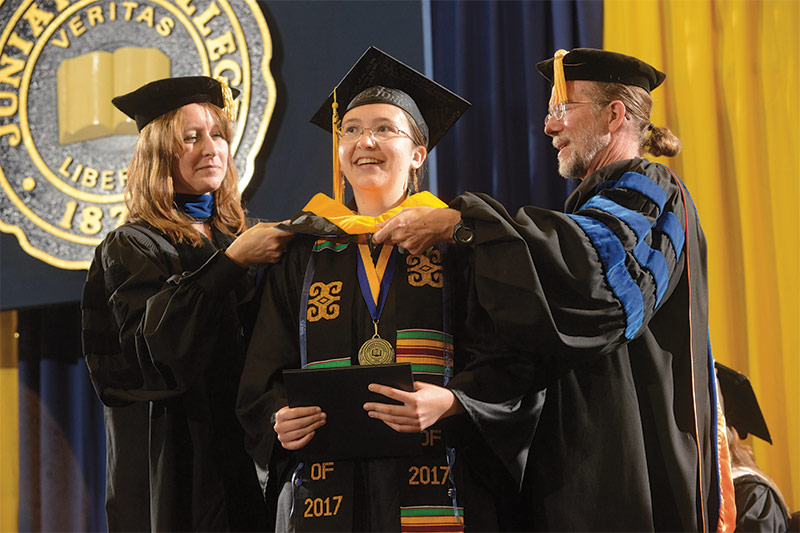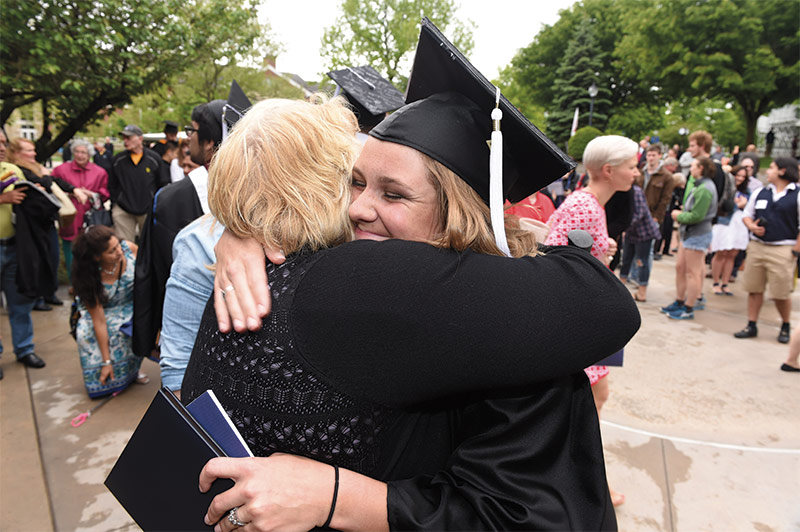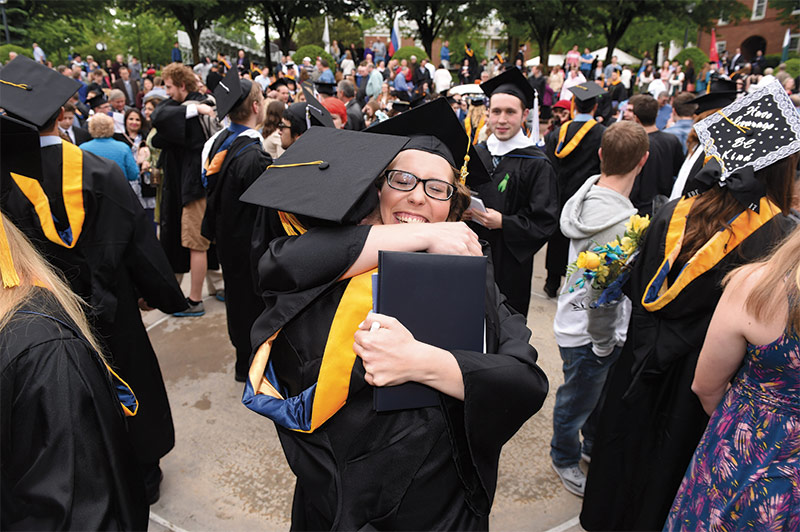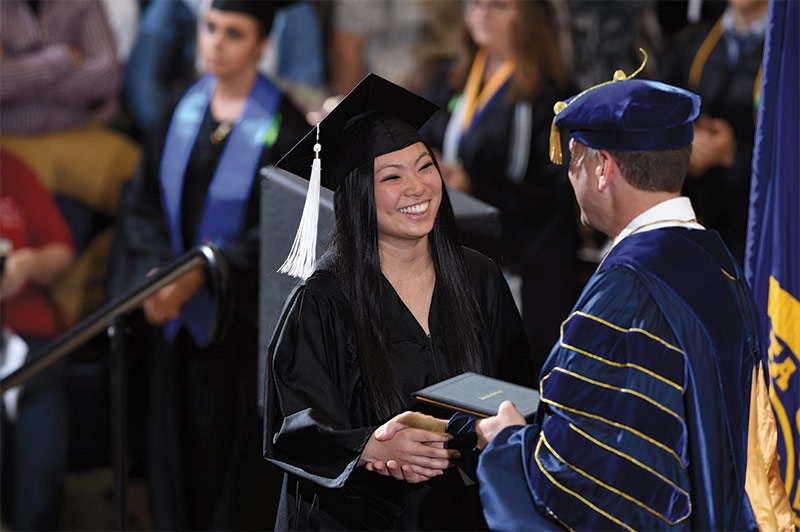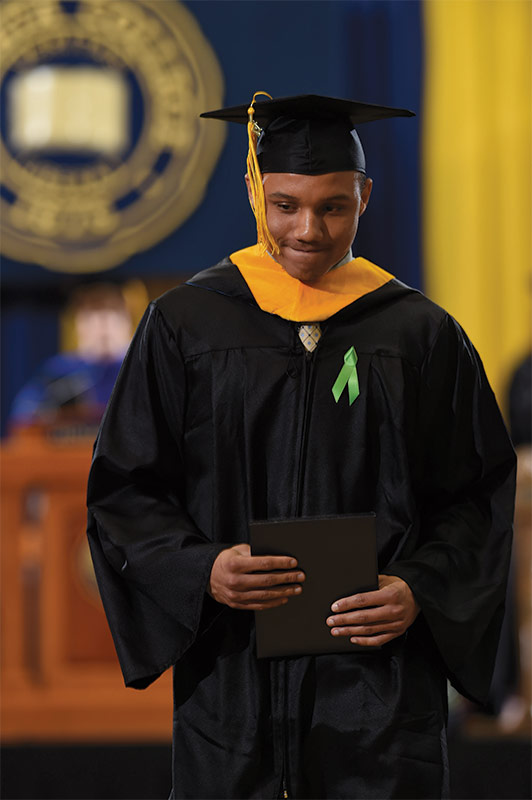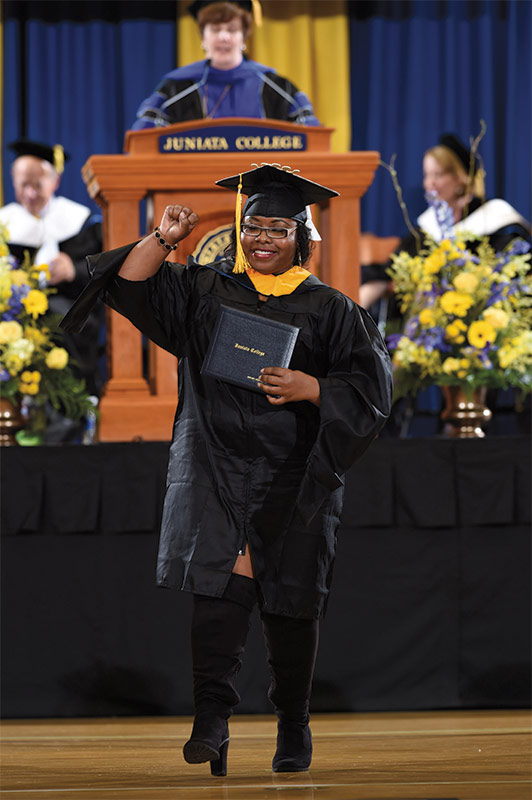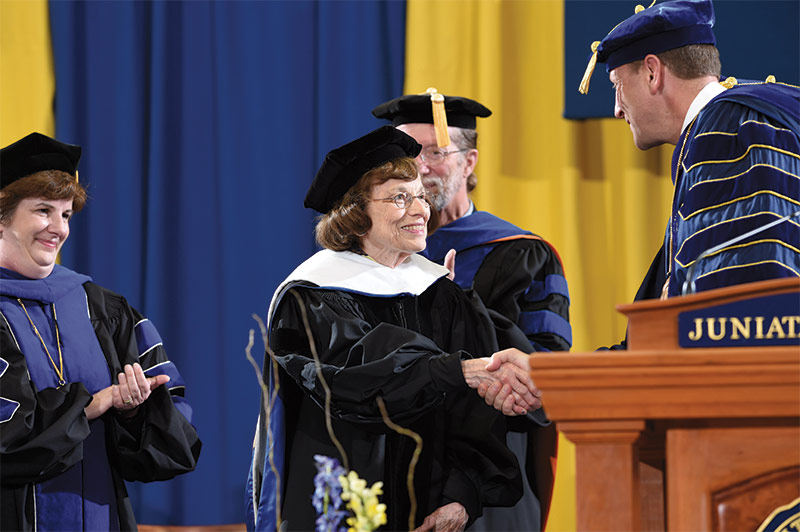The graduating class of 343 undergraduate students was awarded bachelor of arts (106) or bachelor of science degrees (237) at the ceremony. Juniata also graduated five students who earned master’s degrees: three in accounting and two in nonprofit leadership.
The 2017 Senior Class Gift collected more than $46,000 (68 percent of the class contributed to the gift) for an endowed scholarship named in their honor.
In addition, Miriam Smith Wetzel, a 1952 graduate of Juniata, received an honorary doctor of humane letters degree.
Lord, who has led IREX’s efforts in international education and development since 2014, explained, “Global engagement is a mindset and a way of life that anyone can embrace, even if you never leave the country,” she said. “Engaging the world will challenge your mind and uplift your soul, but it can also break your heart. For every act of ingenuity or humanity, there is cruelty and intolerance; after every breakthrough, setbacks. To echo Martin Luther King Jr. and others before him, the arc of the moral universe bends towards justice. But it does not always bend as much or as quickly as we want it to.
“Engaging with the world is still worth the effort. And I am asking you, the class of 2017, to be the generation that gets global engagement right.”
Lord referred to life-changing events and career changes that she called “an unorthodox journey,” saying, “I learned that the best route to impact is making the effort to genuinely understand issues from multiple viewpoints and being willing to question even friends and allies when necessary.”
“I decided that if no one is ever uncomfortable, either you aren’t really working for change or you’re not doing work that matters,” she added.
Lord went on to illustrate how global outreach and peacebuilding is never easy work but also asked the crowd what the alternative to such work is. “If we turn our backs and close our doors, will we really be better off in the end?” she asked. “For good or ill, I think the answer is no. Change does happen, all too slowly, then sometimes all at once. The pressure builds until something bursts forth. We don’t know when it will happen but when it does, it is powerful.”
Lord ended her speech telling the assembled graduates that American security comes not from walls and fear but from vitality and strength. “I believe that if we truly want both security and justice, we must make life better not just for ourselves but for people of all backgrounds, in our country and around the world,” she said. “Our nation’s greatest accomplishments have come from being open rather than closed, brave rather than fearful. That is what I wish for our country going forward—and for you as individuals. But you are going to need to do better than my generation at extending the gains across our society, pulling others up and communities together.”
Before joining IREX, Lord was acting president and executive vice president at the United States Institute of Peace, a federally created organization that seeks to prevent, mitigate, and resolve global conflict worldwide. From 2008 to 2013, she served as executive vice president and director of studies at the Center for a New American Security, where she oversaw the Center’s research efforts.
Lord earned a bachelor's degree in international studies in 1991 from American University, and went on to earn a master's degree in 1993 and a doctorate in 1997, both in government, from Georgetown University.
Miriam Smith Wetzel '52, a resident of Casco, Maine, is a retired curriculum consultant for Harvard Medical School and a former content analyst for Harvard Health Publications. She retired from Harvard Medical School in 2000 as assistant professor of medicine.
She earned a bachelor's degree in music from Juniata and went on to pursue graduate study at Temple University from 1952 to 1954 on a State Senatorial Scholarship awarded to her by the Miss America Foundation as Miss Pennsylvania. She and her family moved to Maine in 1971, where she taught music in the Lake Region School District and was principal of the Manchester School in Windham from 1977 to 1981. She earned a master's degree in 1975 in education administration from the University of Maine, Portland-Gorham, a master's degree in 1982 in human development from Harvard University, and a doctoral degree in human development in 1987 from the University of Pennsylvania.
She was hired by Harvard Medical School in 1985 as curriculum coordinator and played a large role in implementing a new method of medical school education that de-emphasized lecture-based classes in favor of small-group, problem-based learning and case studies.
She was hired by Harvard Medical School in 1985 as curriculum coordinator and played a large role in implementing a new method of medical school education that de-emphasized lecture-based classes in favor of small-group, problem-based learning and case studies.
